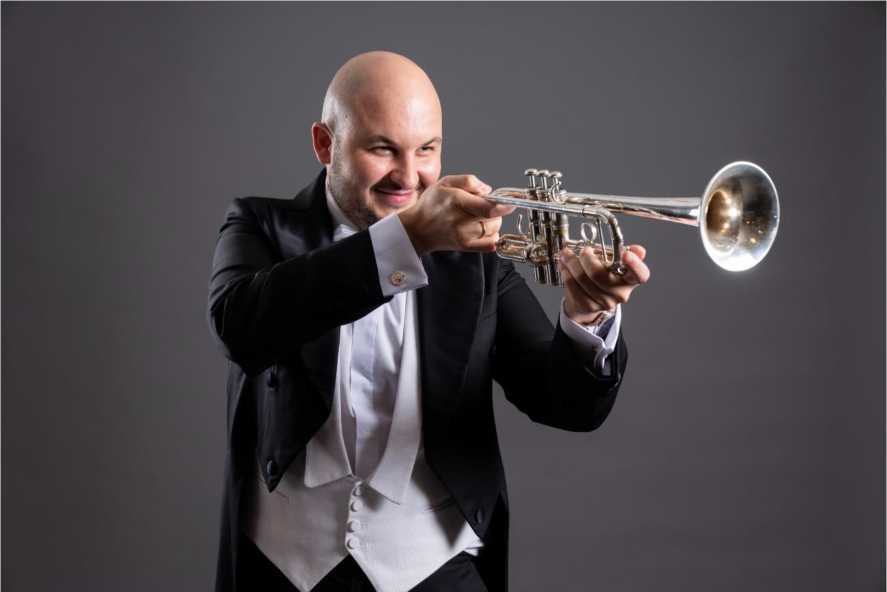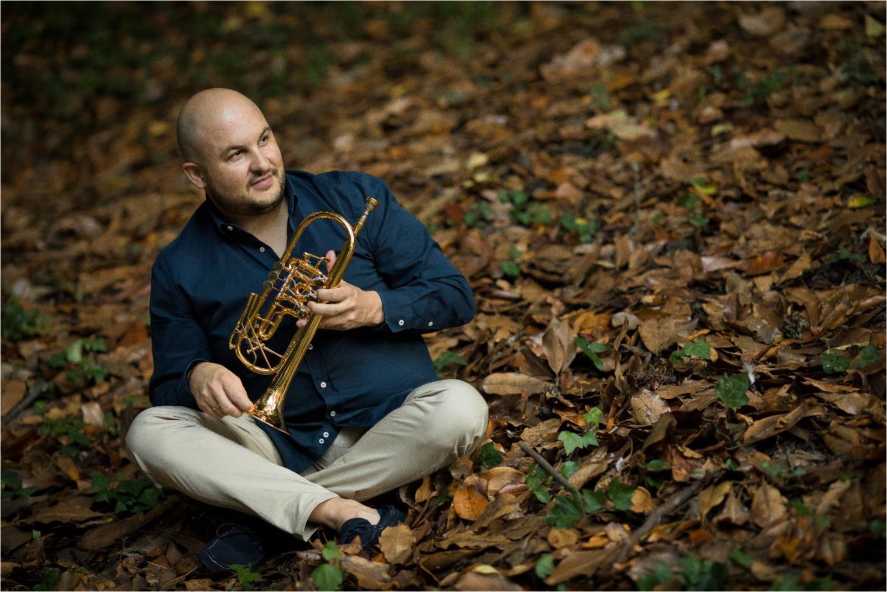Ritmo Magazine No. 957. January 2022. Revista de música clásica [Classical Music Magazine]. Year 93
By Gonzalo Pérez Chamorro
SPANIARDS AROUND THE WORLD, 8TH EDITION
Esteban Batallán
Principal Trumpet of the Chicago Symphony Orchestra (CSO)
https://estebanbatallan.com
From Pontevedra to Chicago
Distance: 6,252 kilometers

In September 2019, Riccardo Muti appointed you trumpet soloist of the Chicago Symphony Orchestra (CSO). What was the process like that led to you sitting in front of a music stand in this orchestra?
Well, it was honestly a long process! I’ll tell you: in 2017, when the CSO opened the registration period for the principal trumpet audition, I immediately went for it, because I had always been a great follower of this orchestra and its history. The truth is that I prepared for the audition with great enthusiasm. Without a doubt this was something that gave me an extra boost of confidence and security for the audition, because I’m one of those people who believe that part of success is the desire you have to achieve your goal, and in my case, it was more than that, because it was a dream. The auditions were in June 2017, and I was the only candidate (out of the 3 days of auditions held) to advance to the final round. Imagine what a joy it is when suddenly the idols you have been worshipping all your childhood and part of your adulthood, who have inspired not only the way you play, but who you are as a musician, see in you something similar to what they are used to doing? For me, that was the reward for many years of perseverance in the pursuit of an ideal: to play the way you play in the Chicago Symphony.
Go on, go on…
A few days after the first round, three soloists from other U.S. orchestras that Maestro Muti had decided to invite joined the finals. After the audition, two of those candidates advanced to what we could call a trial — having won the audition, the orchestra wants to test you by inviting you to play with them. Imagine how I felt, when the orchestra’s personnel manager told me that I had passed the audition and that the members of the jury wanted to greet me; people that it seemed I had known for a lifetime, but had never seen in person… It was unforgettable… Then, in September of that same year, the orchestra invited me to participate in a tour of the West Coast of the U.S.A., but I was unlucky enough to have my visa denied. Sometimes bureaucracy is that cruel. It was a year later, in June 2018 (and for a period of three weeks), when I was finally able to sit for the first time in the chair I had always dreamed of. In the meantime, they kept trying other trumpet players, but none of them seemed to be what they were looking for. In fact, two of my colleagues, Jay Friedman and Charlie Vernon, always maintained (as they later told me) that from the first time they heard me, it was clear to them that I should sit there, and play so they could hear what I sound like within the group.
I suppose that during that time, you received other offers…
Yes, because at the same time, back then in July 2018, Maestro Jaap van Zweden had offered me the position of Principal in the Hong Kong Philharmonic, and during the 2018-19 season I was Principal Trumpet in Hong Kong and Guest Principal in the CSO; until in June 2019 I was invited to the finals along with four other trumpet players, and the commission and Maestro Muti considered me the winner of the position, with an extra two-week trial prior to my appointment in September 2019. The truth is that it was a long process — and it was not comfortable in many situations (mostly because of the bureaucratic part) — but in the end, extremely satisfactory. It was a dream that I still haven’t woken up from.
Before joining this American orchestra, did you ever think that your future would be outside Spain?
I think nobody usually thinks about moving to achieve their dreams, but for me it was very clear that if I got to be where I wanted to be, it would have to be outside Spain — not because I could not have developed in Spain, but because it was something very specific in my case.
How is life in Chicago, a very magnetic and somewhat cold city?
Chicago is a very special city, really. At times it reminds you of that city from the 50s, where gangsters roamed freely, and at the same time it’s a modern and cosmopolitan city where endless activities take place every day. It is a very culturally rich city, where you can go see a Chicago Symphony concert, an opera performance at the Lyric Opera, even see a Broadway musical or take a walk through the different museums and exhibition halls. And yes, from November to March or April, you’d better be prepared to put up with temperatures that can drop to 30 degrees below zero, or even more. Not to mention that the nickname of this city is one of the most characteristic (and everyday) aspects of its climate: The Windy City.
What is your favorite corner of the city? And favorite restaurant?
One of my favorite places in the city is the Fine Arts Building, an 1898 building that has been home to the inspiration of many artists, architects, writers, etc. And that to this day still preserves its original elevator and elevator operator’s station! (If it’s not the last, it’s one of the last). But obviously I have other places where I really identify with the environment — and how could it be otherwise — it’s Orchestra Hall, because I spend most days — and most of the day — within its walls. There are several restaurants that I like, and there are very good restaurants in Chicago, but after concerts I usually go (or we usually go) to The Gage, which is very close to Orchestra Hall and is one of the few places that, both on weekdays and weekends, has the kitchen open until 10 p.m. (remember that here [in the U.S.] we have dinner at 6:30-7:00 p.m.!).
What does a normal day in your life in Chicago look like?
It depends on the day, because Mondays are the days I dedicate mainly to Roosevelt University, where I am a member of the trumpet studies faculty, teaching my classes from 9 a.m. to 2 p.m. From Tuesday onwards, it obviously changes depending on the week and the repertoire, but we usually rehearse on Tuesday mornings, Wednesday double rehearsal (not always) and Thursday dress rehearsal and concert that same afternoon. Depending on the week, there are three concerts (Thursday, Friday, Saturday) or four (including Sunday or Tuesday), and there may even be five (very rarely) from Thursday to Sunday, adding Tuesday.
What opinion do people in Illinois have of Spain and Spanish people, from what you have gathered?
I believe that Spain is a place where every foreigner finds charm in its cuisine (no doubt about it!) and a lot of history, something that makes Americans, for example, who have a fairly young history, marvel when an Alhambra, an Escorial Monastery or a Cathedral of Santiago de Compostela are put in front of them. The same thing would happen to me. As for their opinion about Spaniards, well, I don’t know what to say, to tell you the truth, because what I’ve felt since I arrived here would be something like: “We know you’re not from here, but since you’re here and we love you, you’re already one of us.” Something like that. Also, we have to take into account that more than 50% of the population in Chicago is Spanish-speaking, and Spanish is a language that is often used among the American people.
What do you miss most about Spain and your native Pontevedra, because you’re from Barro?
I am from Barro, a small town of only 3,600 inhabitants, a few kilometers from Pontevedra, in the region of Salnés. And like a good Galician, “morriña” [homesickness] is something that is imprinted on my DNA — family, friends, customs — but since I was very young I learned, instead of missing something, to be content, and whenever I have the opportunity, I enjoy as much as I can everything that I usually don’t have so close by.
And speaking of Spain, do you tend to come often, professionally and personally?
The truth is that I often travel to Spain for both reasons. In fact, I maintain regular activity offering masterclasses in Spain and giving concerts (I was recently with the Real Filharmonía de Galicia), and when my schedule allows it and I have no other international commitments, I take the opportunity to visit Galicia and enjoy all it has to offer.
Upcoming concerts in Spain?
I am in touch with the Bilbao Orchestra about the upcoming 2022-23 season, and there are also other projects in the works with other institutions, but nothing confirmed at the moment. It’s a little difficult to accommodate any kind of performance outside of the Chicago Symphony, because of the schedule I have to keep here, but there’s always room to do something special.
And how is working with Riccardo Muti?
Maestro Muti is pure inspiration, a conductor who, when he gets up in front of the orchestra and starts conducting, you can easily feel each and every one of the ideas he wants to transmit; rarely is one concert the same as another, because as he well defines, music is not mechanical — it is spontaneous. And for that he is unique, a conductor with command and character, and at the same time a friendly person who likes to interact with his musicians, always making it clear to us how much he adores us. And he is very close with me, perhaps because I’m one of the few with whom he speaks in Italian.
“The Chicago Symphony’s sound is pure, clear, vibrant, striking, direct, smooth… This orchestra defines a wide range of dynamic register and colors.”

How would you define the sound of your orchestra?
Pure, clear, vibrant, striking, direct, soft… This orchestra defines a wide range of dynamic register and colors, which, from my point of view, are the fruit of the tradition that goes before it and of the very sonorous and musical conception of its members themselves. I believe that the CSO has always been an outstanding group among those of its category for doing something different from the others, or not the same as the others, if we want to see it that way. We also live in a world where globalization has reached everything, and being different is always interesting, a sign of an identity all one’s own.
How did you experience the lockdown, and where? What is your opinion of everything that has happened and what we are going through? Because there is no good news, despite the vaccine….
I was halfway between Spain and Chicago during the fifteen months that the CSO was not offering concerts to the public. We kept up some activity, recording short concerts with small chamber groups that were published on the orchestra’s website (cso.org). What has happened shows us that the world is capable of achieving common goals in a very efficient way, but it has also allowed us to see that everyone is the master of their own freedom and that, sometimes, we don’t care how much our freedom may condition that of others — selfishness in the face of a common goal (let’s just say vaccination). In order to enter our auditorium, full vaccination or negative PCR is required, and there are many people, especially here, who do not have access due to the lack of the former. Even so, let’s hope things will improve soon, although the prognosis is complicated. I, just in case, have already gotten my three doses.
Speaking of repertoire, what is the music or repertoire in which you feel most comfortable? What pieces are you currently working on?
I feel very comfortable with Shostakovich. He’s one of my favorites, along with Richard Strauss or Mahler, and I can’t pass up Bruckner and Tchaikovsky, among many others. I am also passionate about baroque music, even opera! Something I acquired in my time at the Teatro alla Scala, although I identify more with the composers mentioned above. These days, we are preparing the CSO brass concert, a unique annual event in which the brass and percussion section of the orchestra enjoy the most chamber-like music, a great event that, as soon as it goes on sale, is sold out in a matter of very little time.
Tell us about some of the experiences that have made an impact on you, some of the directors who have directed you.
I try to learn from each director, to find the best in each one, and to take the good ideas they have to offer and make them my own. But you also learn not only in the musical sense. Muti has always been very clear with me, letting me see clearly the responsibility of my position (even though I already knew it), not only on stage, but off stage as well, and not only musically, but personally. To mention an interesting moment, on the Asia tour in January 2019, after finishing our first concert of Verdi’s Requiem at the Bunka Kaikan in Tokyo, just at the moment when the Maestro has the orchestra stand to receive the applause from the audience, I was congratulating the members of the section at my sides, when I see that the Maestro is staring in my direction, not with a very friendly face. Later, talking to him, without being really bothered by that fact, he wanted to send me the message that “the audience always deserves respect, especially when they show their appreciation for the good music we have just given them, so let’s attend to their applause with the greatest possible respect.” Undoubtedly wise words, a lesson that only a great teacher can give, and which also concluded with a smile and an affectionate gesture — perhaps something of small importance, but very valuable to me. Obviously it was a one-off thing, and many other moments with Master Muti have always been wonderful. It was also special when Juanjo Mena came in November 2019 to direct Los Planetas, because I had already worked with Juanjo many years before, but not yet in my new position. As of October 6th, 2021, once I have officially passed my probationary period (which was very conditioned by the pandemic), I will surely have many very good experiences together with my beloved Chicago Symphony Orchestra.
A question we ask monthly: Is there any Spanish recipe that you have made popular with your friends? And any dish that is typical of the city that you usually order at restaurants?
For me, there is nothing more ordinary and delicious than a Spanish omelet, such a simple thing that, perhaps because of its simplicity, goes with my personality, not needing elaborate preparation or the most exclusive foods — just simplicity: a potato and an egg (and if they are homegrown, all the better!). On the other hand, Chicago is part of the Midwest, and here red meat is incredibly popular, so something typical could be a medium-rare rib-eye steak (because it reminds me of the steaks from Galicia), but I am also a fan of sushi and Indian food. Eating is not going to be a problem, is it? Hahaha!
